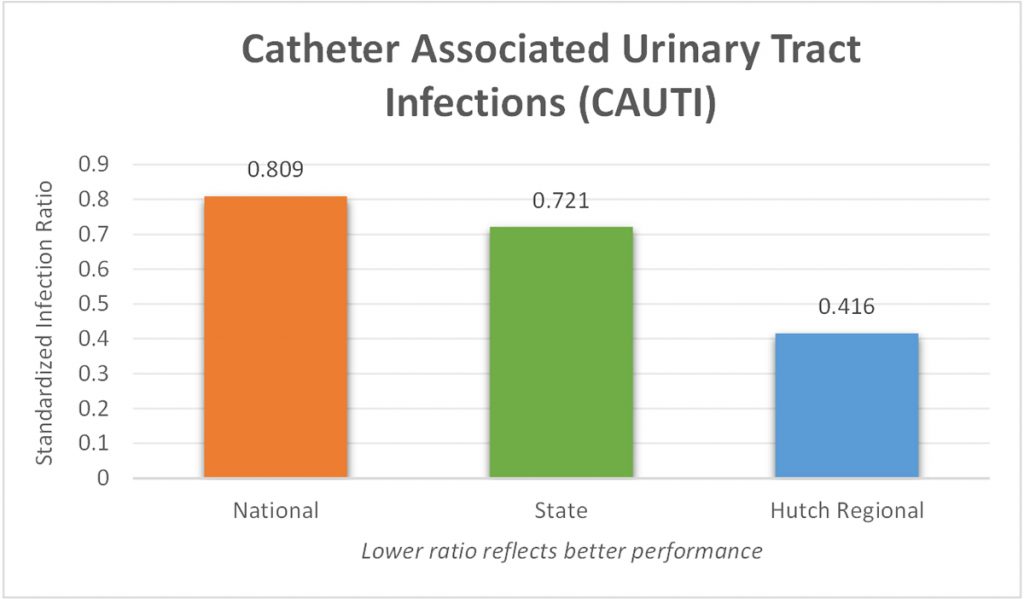Medical Center » About Us » Patient Safety and Quality » Catheter-Associated Urinary Tract Infections (CAUTI)
A urinary tract infection (UTI) is an infection involving any part of the urinary system, including the urethra, bladder, ureters, and kidneys. UTIs are the most common type of healthcare-associated infection reported to the National Healthcare Safety Network (NHSN). Among UTIs acquired in the hospital, approximately 75% are associated with a urinary catheter, which is a tube inserted into the bladder through the urethra to drain urine. Between 15-25% of hospitalized patients receive urinary catheters during their hospital stay. The most important risk factor for developing a catheter-associated UTI (CAUTI) is prolonged use of the urinary catheter. Therefore, catheters should only be used for appropriate indications and should be removed as soon as they are no longer needed.

The Standardized Infection Ratio (SIR) is a statistic used to track healthcare associated infections (HAIs) over time, at a national, state, and facility level. The SIR compares the actual number of HAIs at each hospital, to the predicted number of infections.
1701 E 23rd Ave
Hutchinson, KS 67502
620-665-2000
Visitation Hours:
M-F 6:00 am – 9:00 pm
Sat-Sun 7:00 am – 9:00 pm